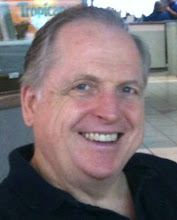In a conversation today about facilitating change and learning for an organization, I was reflecting on some key processes that I have found over the years to be especially helpful and wanted to use this post to keep them "top of mind" and to share them with others. The ideas came from multiple sources have have become a part of my organizational change toolkit that I bring with me when consulting, advising, or otherwise working on projects dealing with learning and change. (See the link at the title of this post and explore some of the stories on that website.)
1. "Begin with the End in Mind" (from Steven Covey's work)--what is the total process involved and what are the final results being produced? This can begin at a high level and may have to come down to a more detailed level when dealing with identifying changes that need to happen.
2. "What are the bottlenecks in the process?" (from Eli Goldratt's work)--What slows down or stops the process flow? What would happen "downstream" if the bottleneck were removed? Most organizations have multiple bottlenecks which are only discovered when one early in the process is removed and it slows down again at the next bottleneck.
3. "Is there a critical chain?" (from Eli Goldratt's work)--Do certain things have to be ready before other things? Does that happen? What can interfere? Do resources have to be mobilized or staged so that the process can pick-up what is needed when it is needed to carry on to the desired results?
4. "Follow the trail of the money" (from Jerry Maguire)--Where does the money come from? Where does it go? Where does the organization place its value--on customers, on suppliers, on employees? Where is the balance and/or the priority of the owners of the business?
5. "Are we trying to force solutions or to ask the right questions?" (from Action Learning)--Do we have a facilitator to help us keep on track asking the right questions? Do we have a group committed to following the action learning process to work through the process of changing the organization? Who composes the group? What questions are being asked?
6. "Do we know what we want or need to change and what we want or need to change to?"--(from Organizational Change literature)--How do we know that? Have we thought it through and tested our beliefs?
7. "Do we share a common vision of the change goal?" (from Jack Gibb's work with Trust)--(see http://joelmonty.wikispaces.com/file/view/Meta-Learning+Models.PDF and look for the Meta-Model on "Trust Dimensions in Team Performance")--Everyone working for the change needs to move through some dimensions of trust and get to a shared (collaborative) vision for the change. Then the group can develop a strategy and then tactics for how to achieve the change. Learning will be part of the strategy and tactics to develop or achieve the vision.
8. "Have we moved through the states of 'awareness--acceptance--action' with regard to the goal?" (from http://joelmonty.wikispaces.com/file/view/Meta-Learning+Models.PDF --see the "Personal Performance Change Curve" and the "Organizational Performance Change Curve")--Individuals and groups need to move through these stages to bring the change about. If a sufficient number of people have not progressed to the appropriate stage, the change will probably be rejected.
9. "What levels of trust and potentials for synergy exist with the change team?"-- (see the meta-models listed earlier in this blog)--Trust is, indeed, the glue that allows change to happen. If it is missing, the group has to work to re-establish it at a sufficiently high level to allow progress to the next step in the trust building and performance change processes.
10. "Are all stakeholders involved and invested?" -- (from organizational change literature)-- If a stakeholder has been missed or is not in agreement, the change can be blocked or sidetracked quickly.
11. "Is everyone communicating clearly with shared definitions of relevant ideas and terms?"--(from organizational change literature)--Regardless of languages spoken, are members of the team talking about the same things when they discuss the change--goal, strategies, tactics, results, learning.
Sunday, August 16, 2009
Subscribe to:
Post Comments (Atom)




No comments:
Post a Comment
Thanks for your comments. They will appear on the blog shortly.